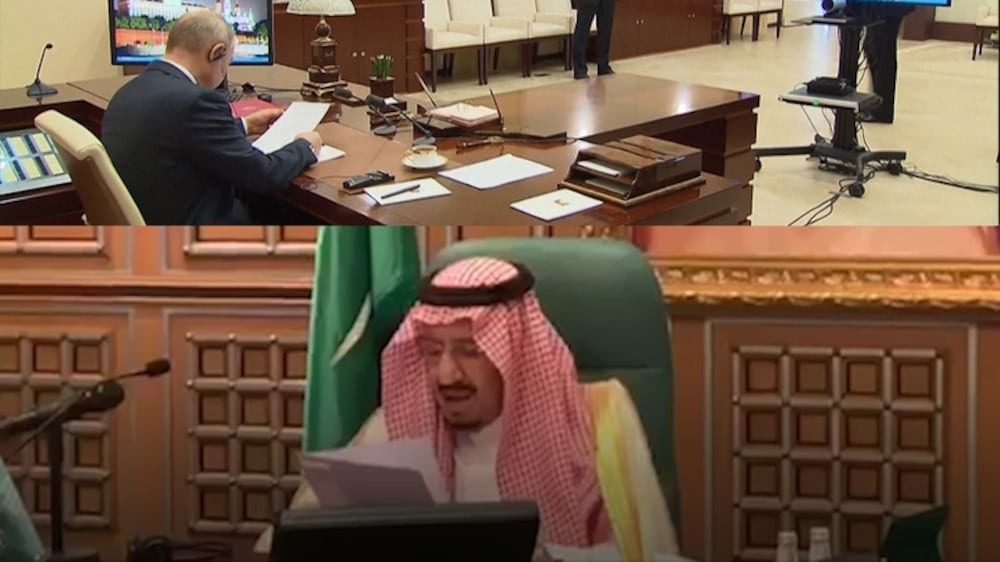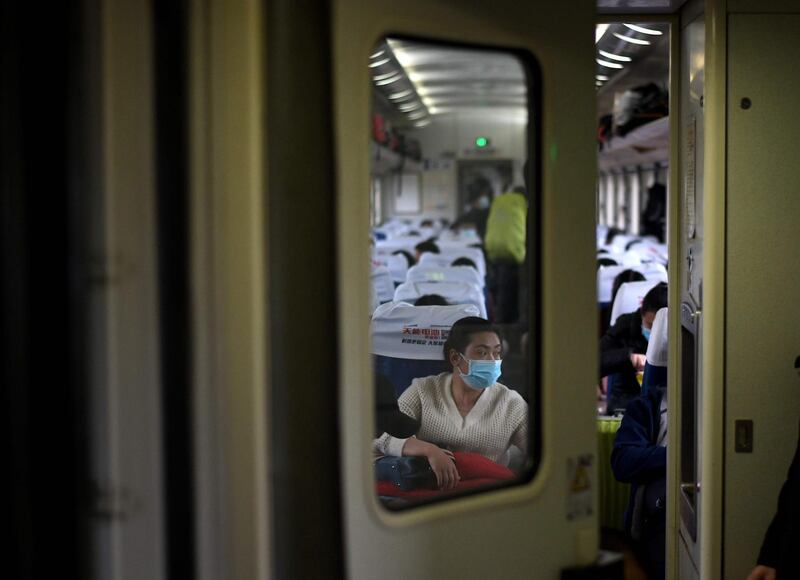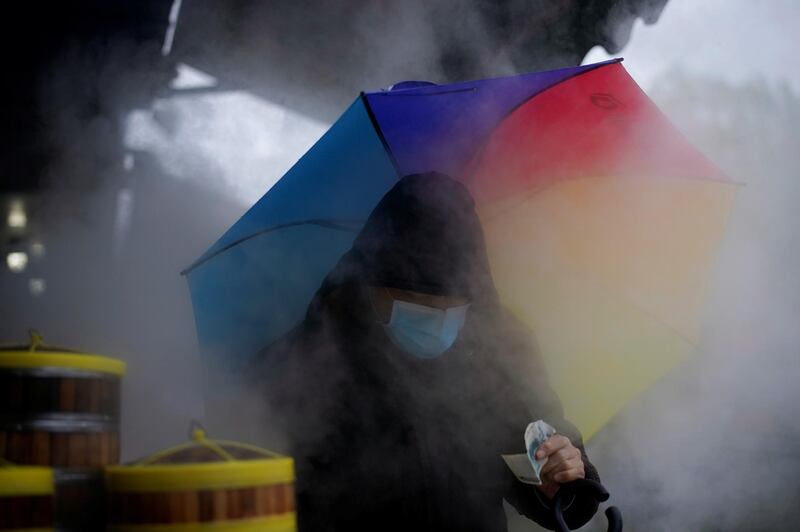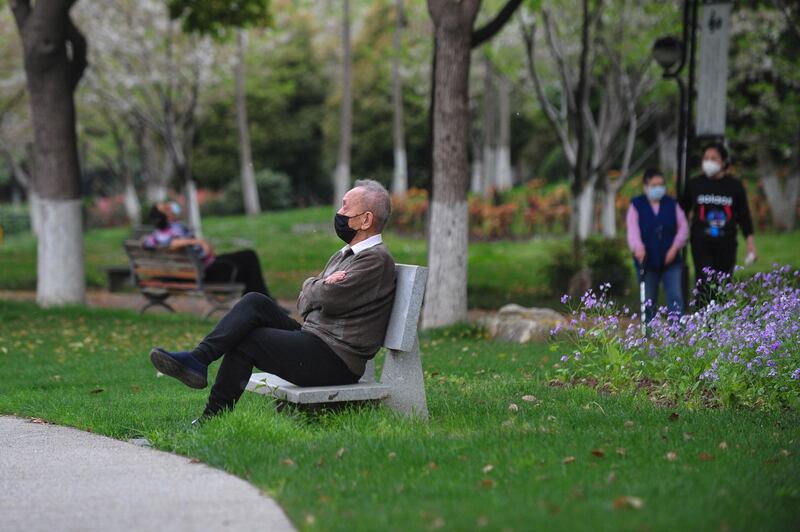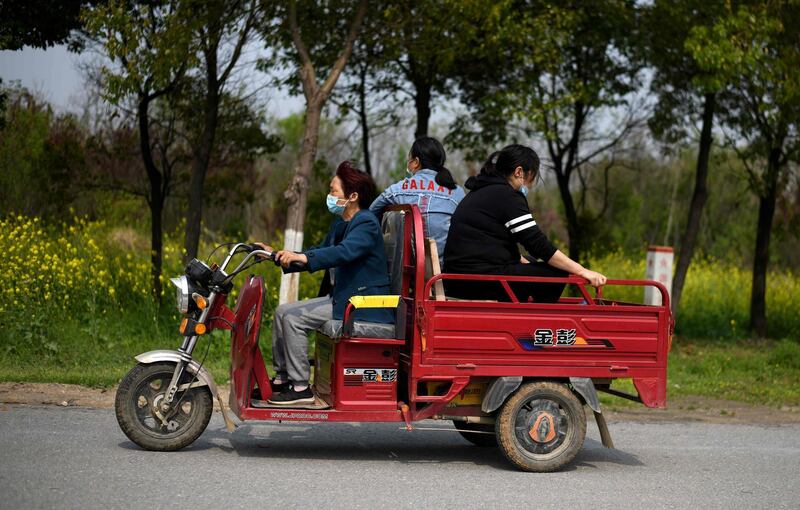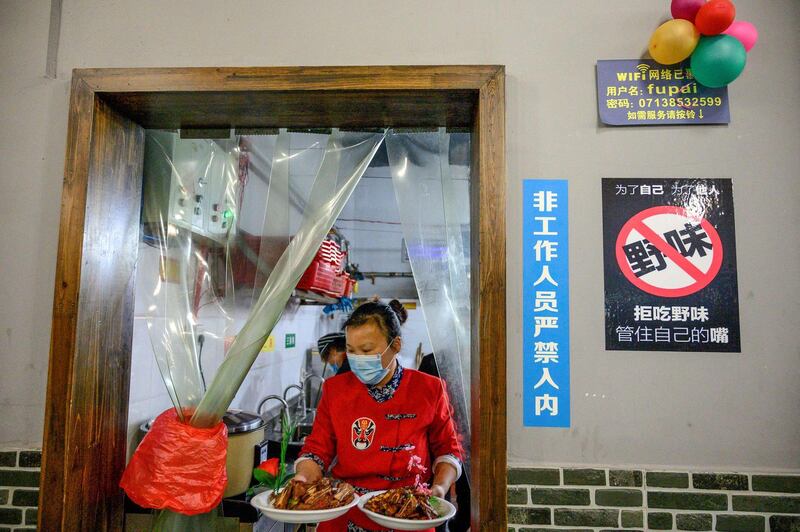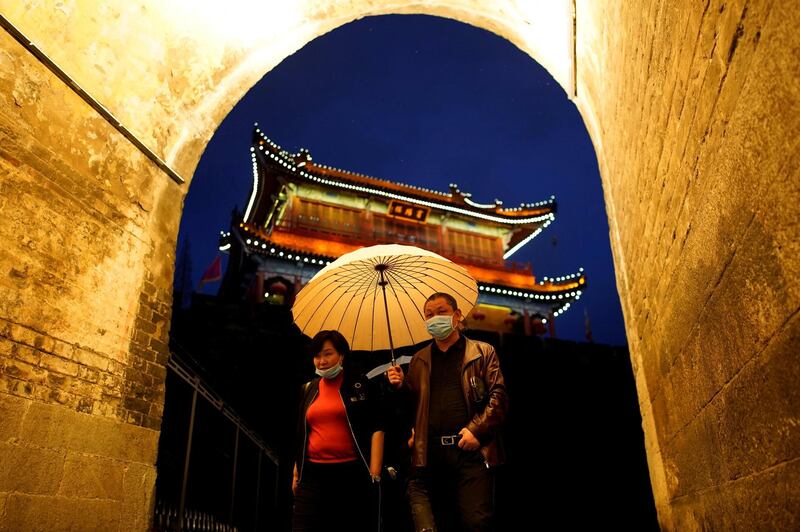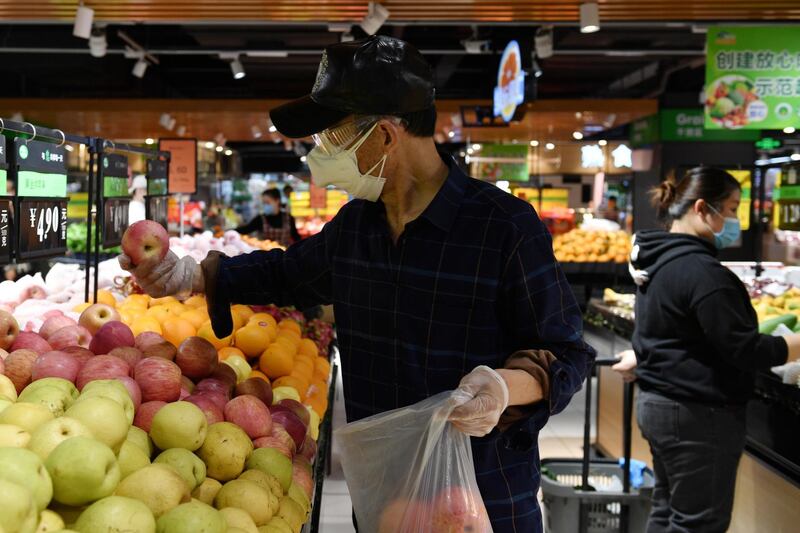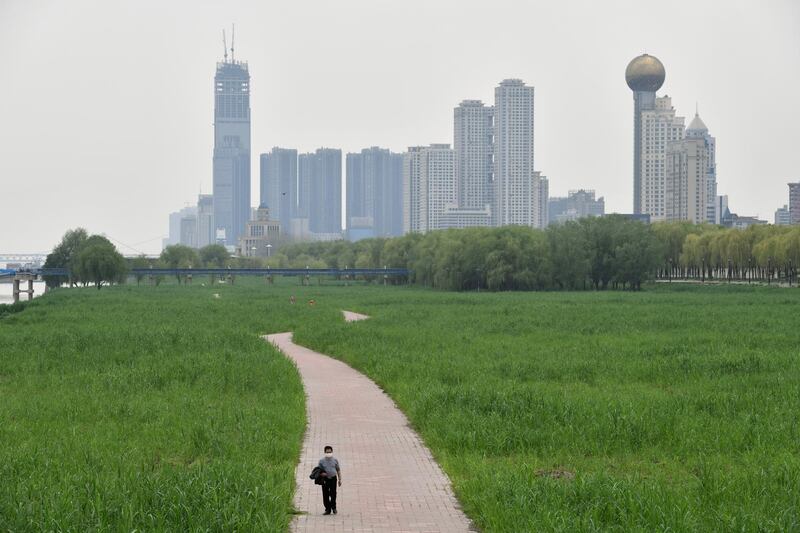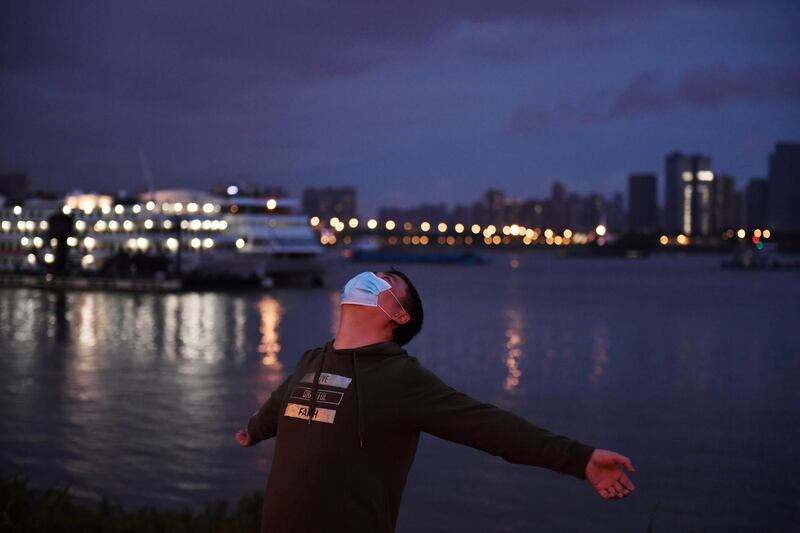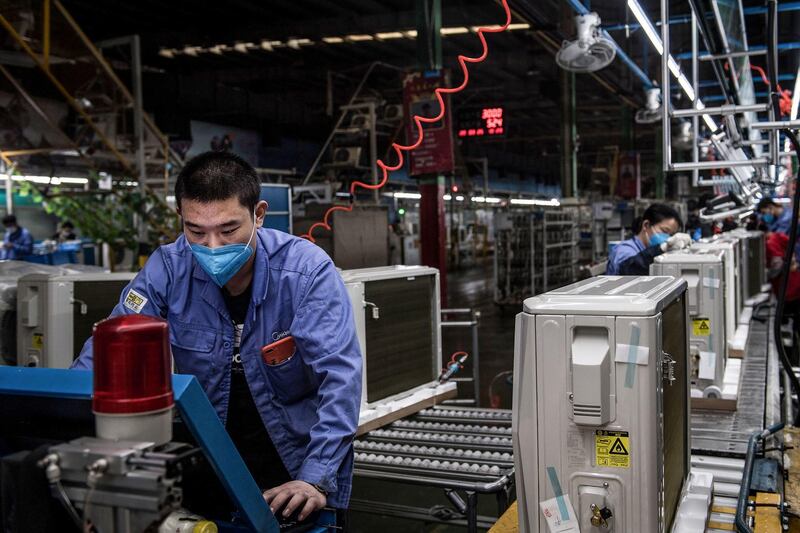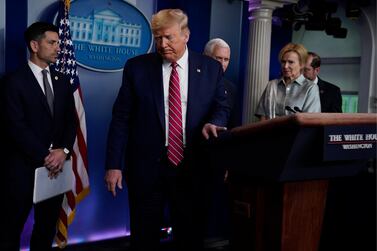In more ways than one, the virtual G20 summit chaired by Saudi Arabia on Thursday proved to be successful. For one, it brought the leaders of the world’s largest economies together – in a manner of speaking – as they called for global solidarity and a united front to fight the coronavirus pandemic. The group also pledged $5 trillion to defend the global economy and allocated a budget for research into slowing down the virus that has spread around the world and infected people without discrimination.
The summit, which was chaired by King Salman, enhanced the host nation's own position in the G20 and reaffirmed its commitment to cohesiveness within the group and the fostering of a united front. Aside from promoting a globalised approach to solving the crisis, the Saudi initiative also went a long way way in soothing relations between some countries.
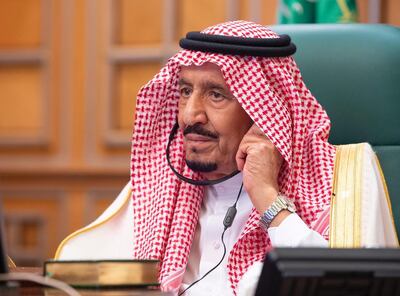
Amid what has been widely characterised as an "oil price war" over the past few weeks, the meeting will have helped to soften the Saudis' own relationship with Russia. Earlier this month, Saudi Arabia had announced that it will increase its oil production capacity by 8.3 per cent to 13 million barrels per day following the collapse of the Opec+ alliance, led by the Kingdom and Russia. The issue itself was not directly discussed at the meeting, but it was telling that Russian President Vladimir Putin joined the summit.
Meanwhile, the US and China seem to have agreed on a cessation of hostilities, with the world's two largest economies attempting to calm tensions following allegations and counter-allegations over the place of origin of the virus. Matters came to a head after US President Donald Trump and members of his administration called the virus the "Chinese Virus", followed by protests that it had a racial undertone to it. However, pledges to co-operate have since been made, with Mr Trump backtracking on his preferred nomenclature.
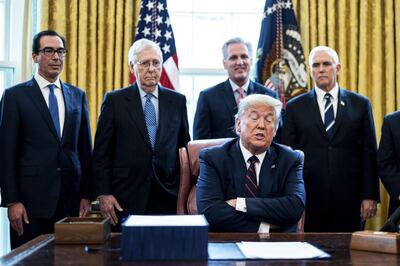
It is not surprising that the eyes of the world are affixed on the developed industrial nations. After all, they hold the keys to a breakthrough thanks to their scientific, technological and medical capabilities. Yet, these countries are not likely to curb competition even in the time of Covid-19 – be it over developing treatments, vaccines and testing kits. Each country is looking to make an imprint in what is essentially a global race to save lives and economies – and also present a new vision for strategic policies post Covid-19. There is a realisation that the nation that wins the race in finding a cure or a vaccine will see its own economy – and its reputation in the world – soar high.
This may have united efforts within individual nations in the West. In the US, for instance, Mr Trump's Republican Party and the opposition Democratic Party have achieved a rare consensus, agreeing on a $2.2tn stimulus package to protect the economy and the American citizens.
Meanwhile in Europe, Germany has led the way by allocating billions to save lives and prop up the economy, while putting its formidable technological and medical capabilities to protect its citizens and chart out a future strategy.
Mr Trump sounds confident in his administration's ability to contain the fallout from the outbreak, although he has given his officials a deadline some believe to be absurd: by Easter in mid-April. Mr Trump’s personality has often prompted either extreme loyalty to him or extreme antipathy towards him.
In the end, it will be American public opinion that will decide whether his economic and medical response to the coronavirus is a success or a failure, at the ballot boxes in November.
However, one must admit that the US has a higher number of Covid-19 cases because it is testing vigorously to learn the extent of the virus’s spread. In fact, the US deserves praise for ensuring transparency and, essentially, showing leadership. American recovery and its leadership in the global coronavirus response is key to achieving worldwide recovery, given the size of its economy and influence over the global polity.
Meanwhile in the developing world, we have seen several trends emerge: some countries are too poor to be able to mount any meaningful response to save lives. And while a number of serious governments are pursuing tried-and-tested strategies and making commendable efforts to contain the outbreak, others are using the outbreak as an excuse to hold on to power and evade accountability.
A case in point is Lebanon, where the ruling political class continues to reject a bailout package proposed by the IMF, even though it is the only means Beirut has to rescue itself from collapse. The reason is simple: the ruling elite does not want to open its balance sheets and expose itself to accountability – and possibly prosecution. But in the process, it is the people who are suffering.
The important thing to note is that the G20 has opened up its purse-strings. It is now up to all countries, big and small, to continue with their serious work at a critical time in our history.
Raghida Dergham is the founder and executive chairwoman of the Beirut Institute
